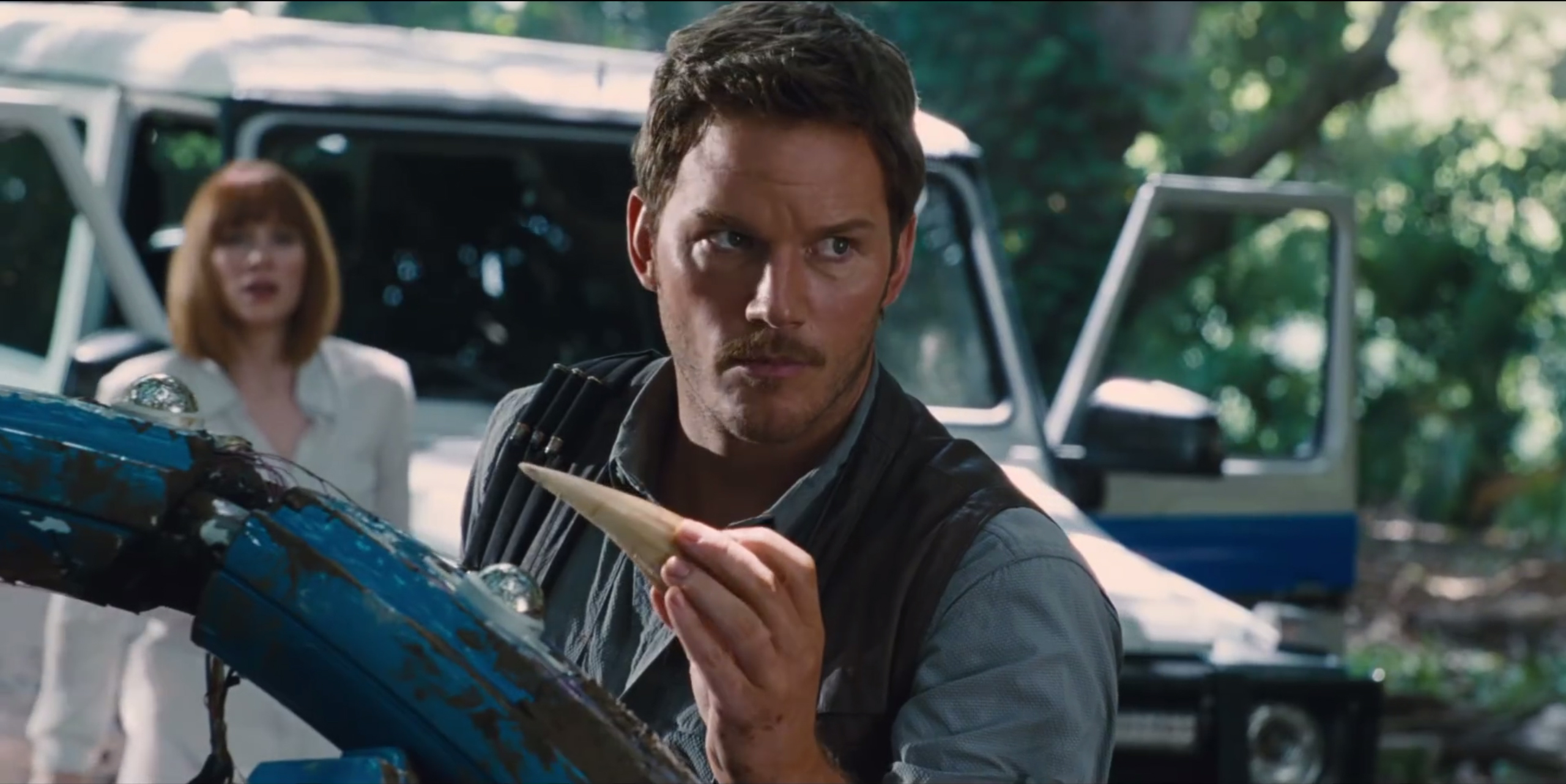For Colin Trevorrow’s update to the Jurassic Park franchise, those iconic T-Rex footprints remain pretty big shoes to fill.
The film drops us into Jurassic World, the now-functional theme park built on Jurassic Park’s disastrous backbone. The new park holds a massive mutation within its grounds: the Indominus Rex, a hybrid created from a cocktail of different species that’s been genetically engineered to draw curious crowds. But film audiences might wonder about the mutated identity of Jurassic World itself more than that of its newest attraction. World attempts everything in order to please everyone—at least for a brief moment before shedding its skin and trying another new tone.
The most enjoyable version of this film is the shameless creature feature with dinosaurs escaping and wreaking havoc on countless employees, guards, and tourists. Even as World wrestles with daddy issues and its own identity crises, the update easily trumps the original’s body count. The climactic battles that eschew humans entirely are the most crowd pleasing, and World correctly recognizes a whale-sized aquatic reptile as the coolest addition to the Jurassic menagerie. The film’s best asset: Owen Grady (Chris Pratt), who trains a quartet of semi-domesticated velociraptors to track the escaped Indominus Rex. But Pratt’s fun to watch because of magnetic good will, not because of his joylessly blunt character.
World’s attempts to tell anti-everything cautionary tales are the film’s worst offenses. The surrogate John Hammond role alternates between a billionaire investor (Irrfan Khan) with all the overconfidence and none of the optimism and the operations manager Claire (Bryce Dallas Howard), who is apparently the film’s lead but borders on slapstick levels of workplace incompetence. She’s completely unable to sell the one-liners meant to soften the blow of her stunningly bad decisions.
The film’s best lines, jokes, and themes all come from the park’s control room, where outstanding comic actors Lauren Lapkus and Jake Johnson comment on the carnage like a geek Greek chorus. Trevorrow made his debut with the gentle low-budget comedy Safety Not Guaranteed, and it’s possible that a witty outsider perspective on the idea of spectacle, a sort of Rosencrantz and Guildenstern Are Dead angle on summer blockbusters, may have been the movie he most wanted to make. But with its many callbacks, references, and revisits, World’s basic identity is its nostalgia-exploiting reaffirmation of how much you love Jurassic Park. If you clap at any point in World, you’re clapping for Park.
But Jurassic Park needs no hypeman. Fans love it for its simple, powerful vision of a food chain paved with good intentions, a modern retelling of Frankenstein where the creations surpass the creator with equal measures of awe and peril. But Jurassic World doesn’t tell us anything. It’s content to simply be Frankenstein’s Monster, a conflicted collection of recognizable parts that intrigues and repels in equal measure, wanting love when you were kind of hoping it would give you some. FL









